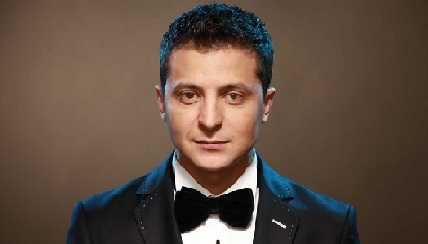
UNITED NATIONS (AP) — Ukraine’s president laid out a detailed case against Russia’s invasion at the United Nations and demanded punishment from world leaders in a speech delivered just hours after Moscow made an extraordinary announcement that it would mobilize some reservists for the war effort.
Buoyed by a counteroffensive that has retaken swaths of territory that the Russians seized, Volodymyr Zelenskyy vowed in a video address Wednesday that his forces would not stop until they had reclaimed all of Ukraine.
“We can return the Ukrainian flag to our entire territory. We can do it with the force of arms,” the president said in a speech delivered in English. “But we need time.”
Video speeches by Zelenskyy in an olive green T-shirt have become almost commonplace. But this speech was one of the most keenly anticipated at the U.N. General Assembly, where the war has dominated.
The topic popped up in speeches by leaders from all over the world who deplored the invasion not least because they said it was not consistent with the cornerstone principles of the United Nations — including respect for sovereignty.
“It’s an attack on this very institution where we find ourselves today,” said Moldovan President President Maia Sandu, whose country borders Ukraine.
U.S. President Joe Biden’s address, too, focused heavily on the war in Ukraine.
“This war is about extinguishing Ukraine’s right to exist as a state, plain and simple, and Ukraine’s right to exist as a people. Whoever you are, wherever you live, whatever you believe, that should make your blood run cold,” he said. “If nations can pursue their imperial ambitions without consequences, then we put at risk everything this very institution stands for. Everything.”
The war will remain front and center at the gathering on Thursday, when the Security Council plans to take up the issue.
Russia hasn’t yet had its turn to speak at the gathering.
Putin, who is not attending the General Assembly, has said he sent his armed forces into Ukraine because of risks to his country’s security from what he considers a hostile government in Kyiv; to liberate Russians living in Ukraine — especially its eastern region of the Donbas — from what he views as the Ukrainian government’s oppression; and to restore what he considers to be Russia’s historical territorial claims on the country.
Zelenskyy’s speech was distinguished by its context. It took place after Moscow’s extraordinary mobilization announcement. It was the first time Zelenskyy addressed the world’s leaders gathered together since Russia invaded in February. And it wasn’t delivered at the rostrum where other presidents, prime ministers and monarchs speak — but instead by video after Zelenskyy was granted special permission to not come in person.
Putin’s decree Wednesday about the mobilization was sparse on details. Officials said as many as 300,000 reservists could be tapped. It was apparently an effort to seize momentum after the Ukrainian counteroffensive.
But the first such call-up in Russia since World War II also brought the fighting home in a new way for Russians and risked fanning domestic anxiety and antipathy toward the war. Shortly after Putin’s announcement, flights out of the country rapidly filled up, and more than 1,000 people were arrested at rare antiwar demonstrations across the country.
Zelenskyy didn’t discuss the developments in detail. But he suggested any Russian talk of negotiations was only a delaying tactic, and that Moscow’s actions speak louder than its words.
“They talk about the talks but announce military mobilization. They talk about the talks but announce pseudo-referendums in the occupied territories of Ukraine,” he said.
Canadian Prime Minister Justin Trudeau, meanwhile, contended that the mobilization was a sign was is “failing and flailing” in Ukraine.
Zelenskky asserted that Moscow wants to spend the winter preparing its forces in Ukraine for a new offensive, or at least preparing fortifications while mobilizing more troops in the largest military conflict in Europe since World War II
“Russia wants war. It’s true. But Russia will not be able to stop the course of history,” he said, declaring that “mankind and the international law are stronger” than what he called a “terrorist state.”




